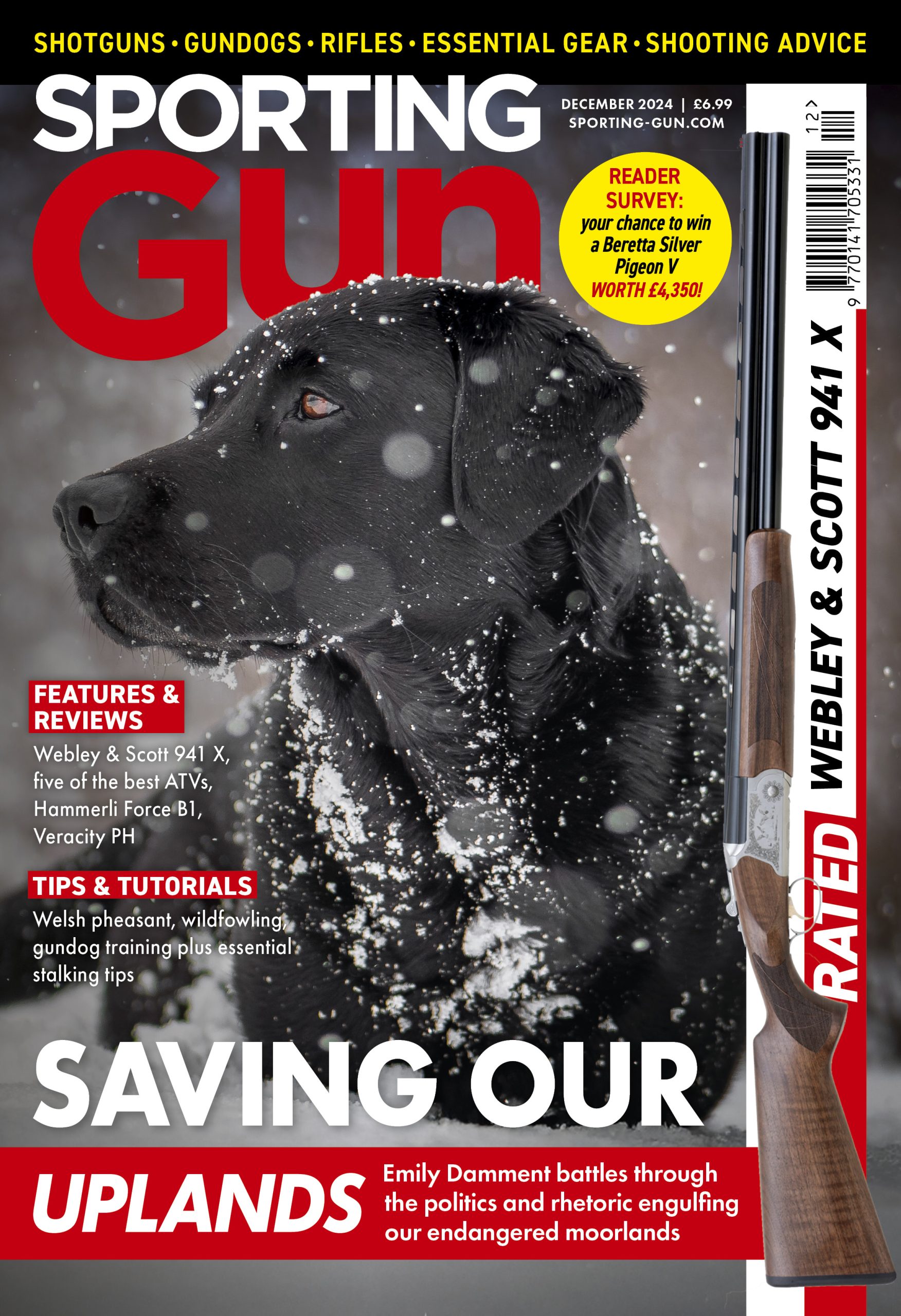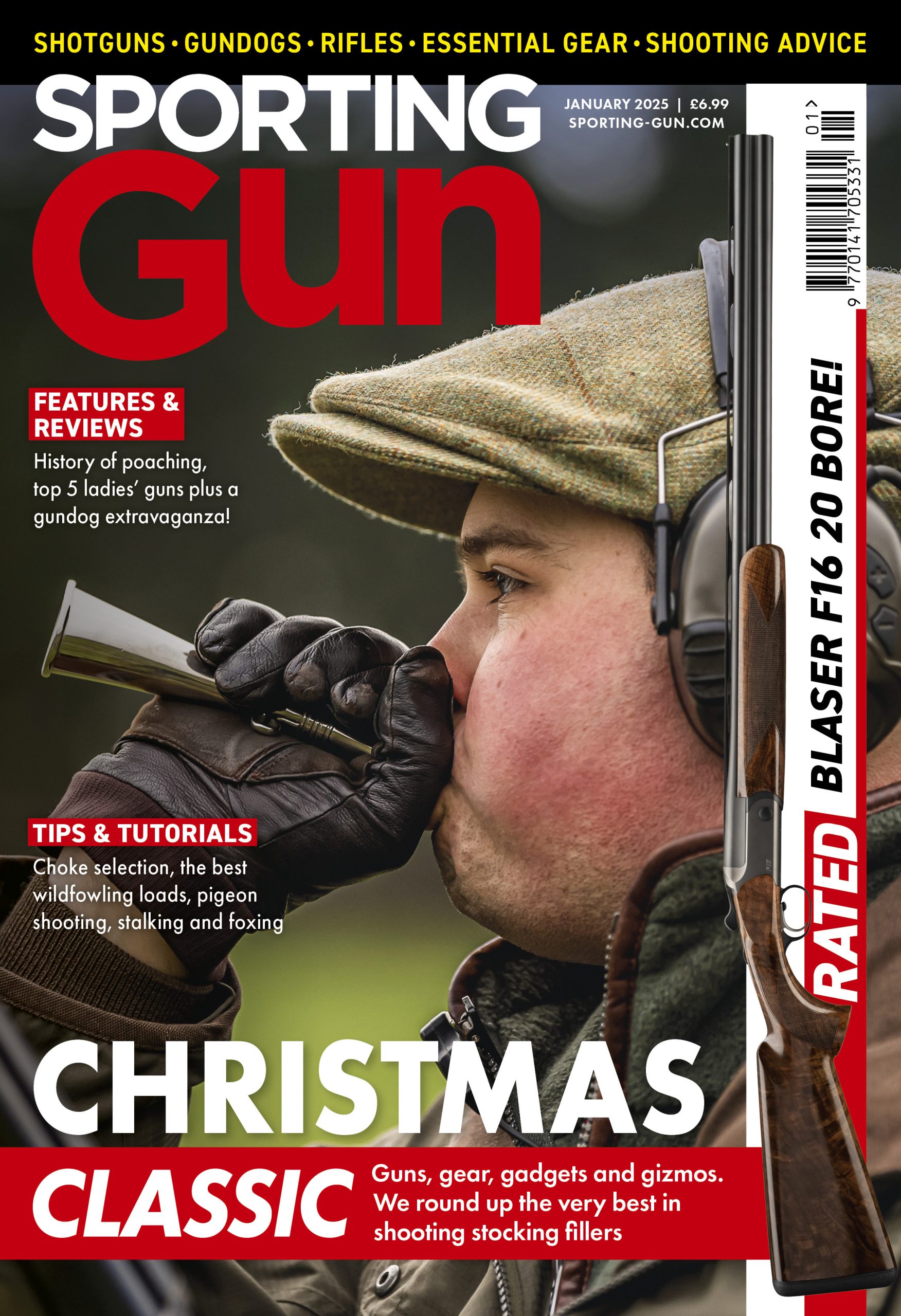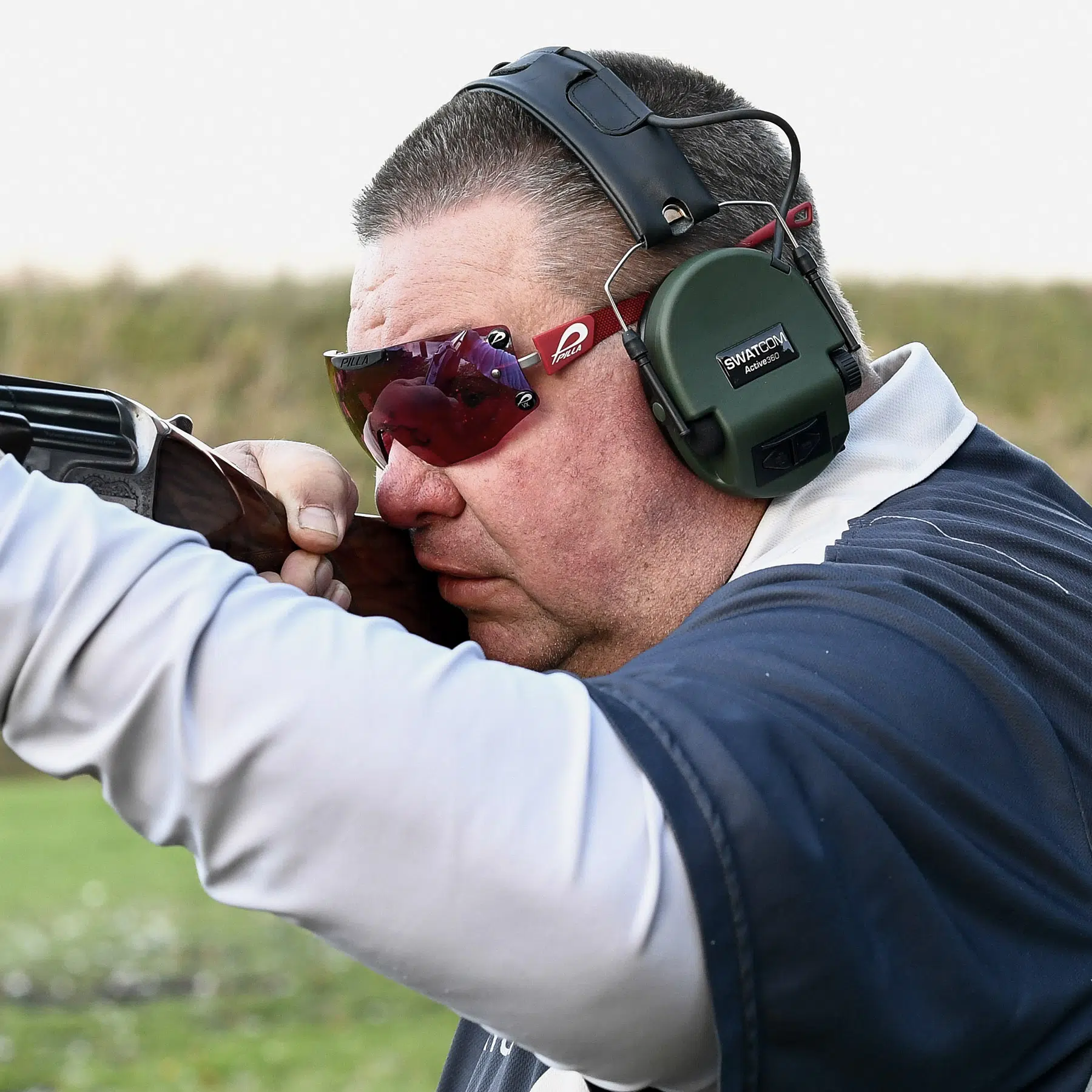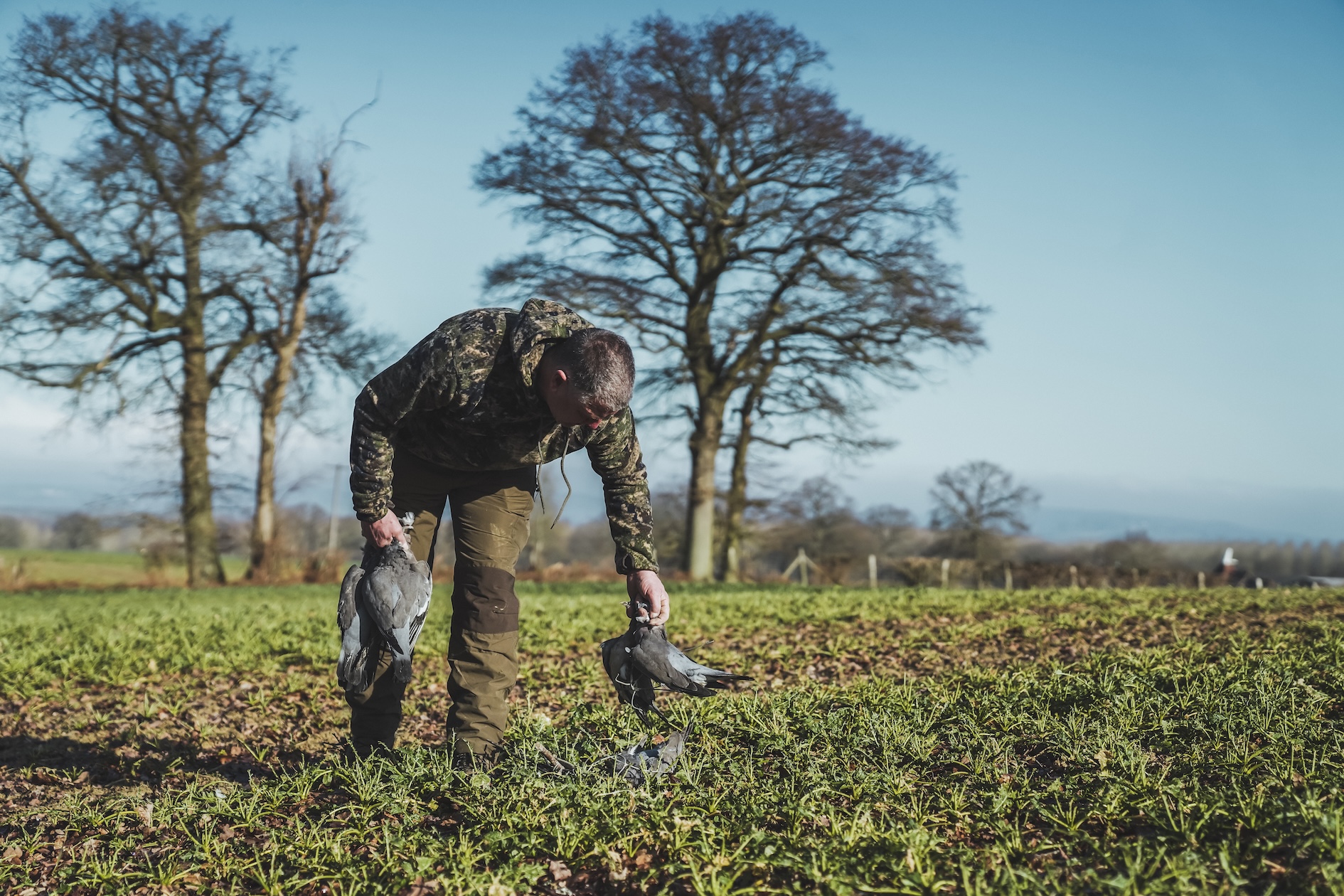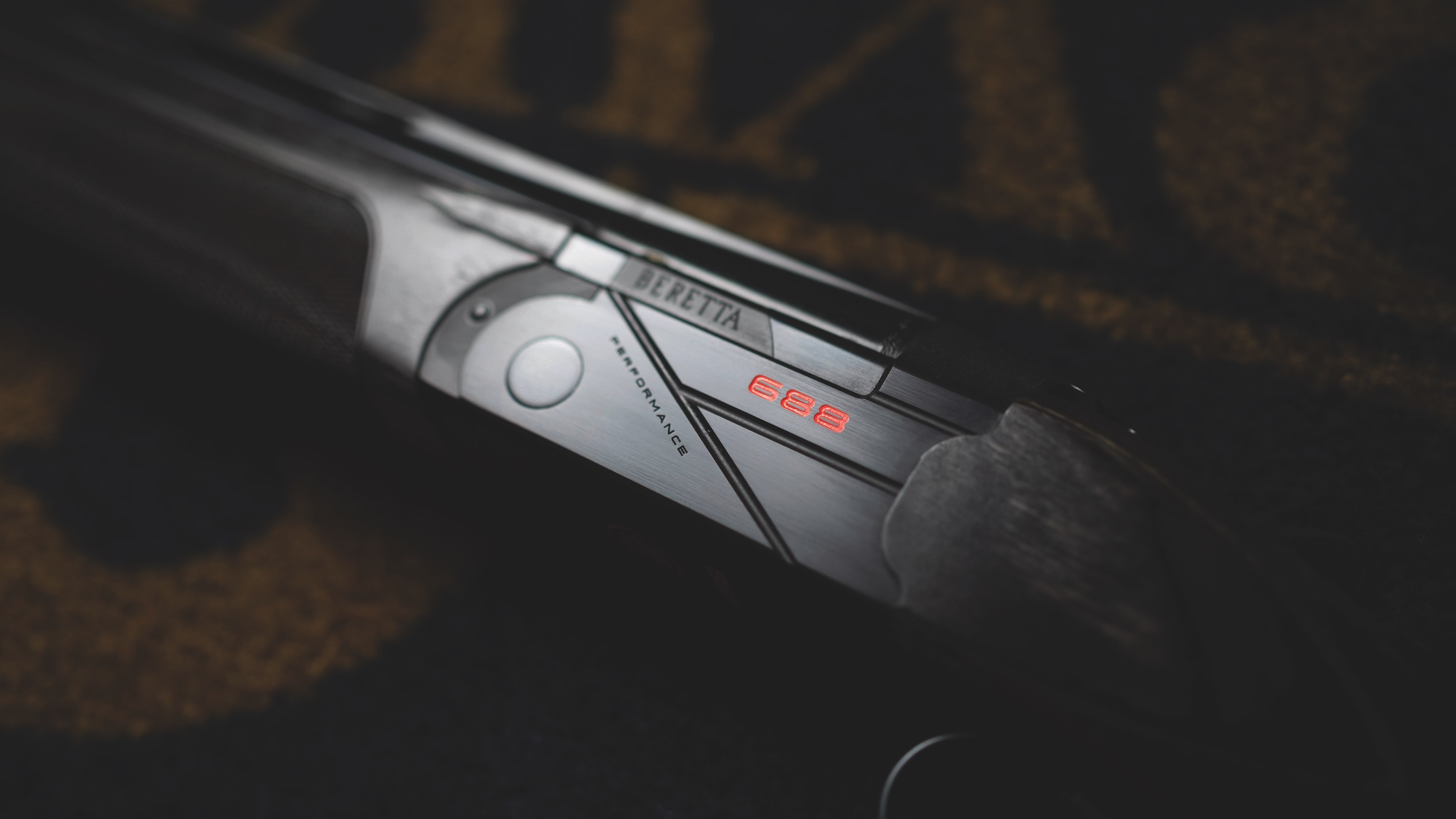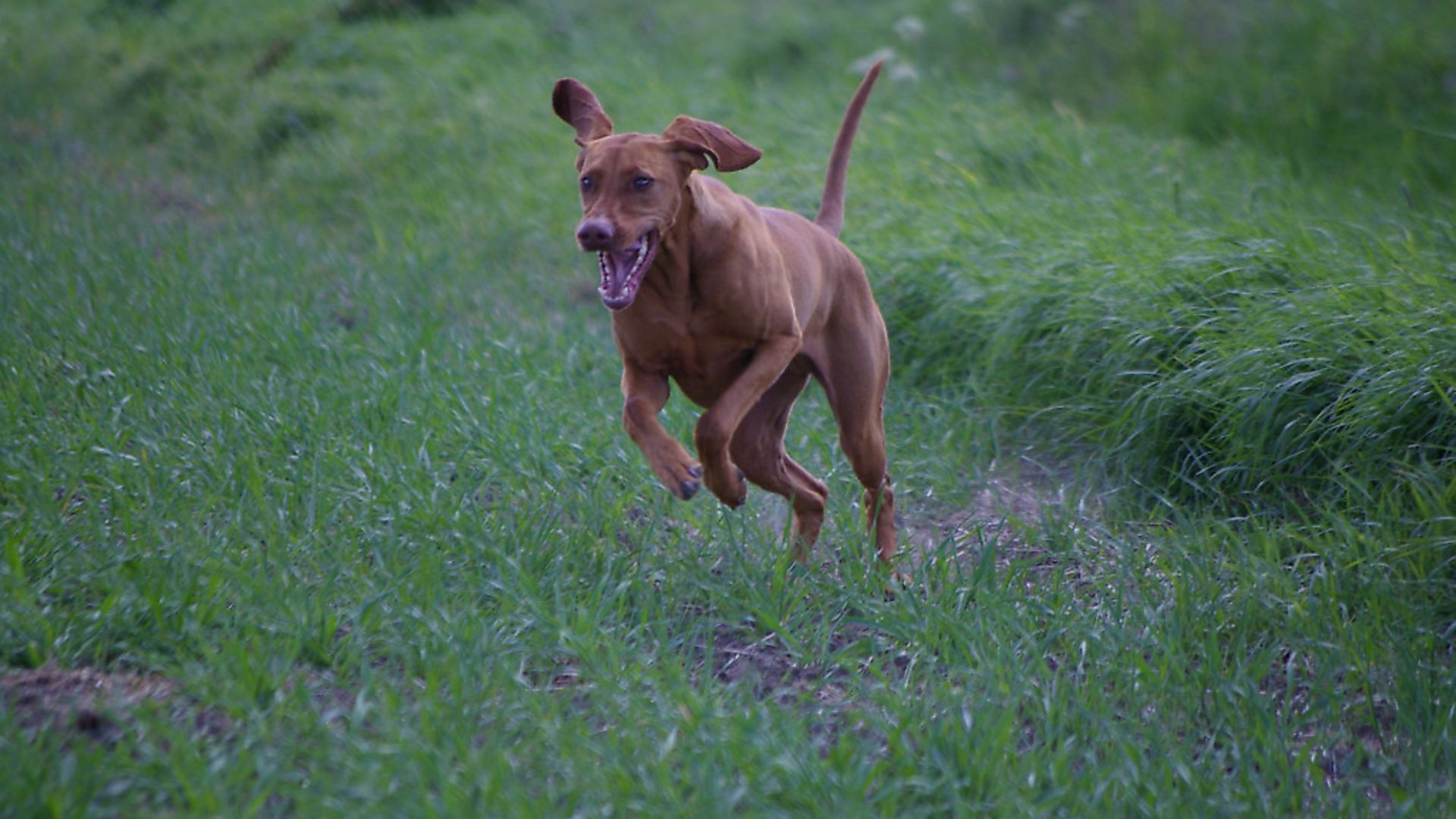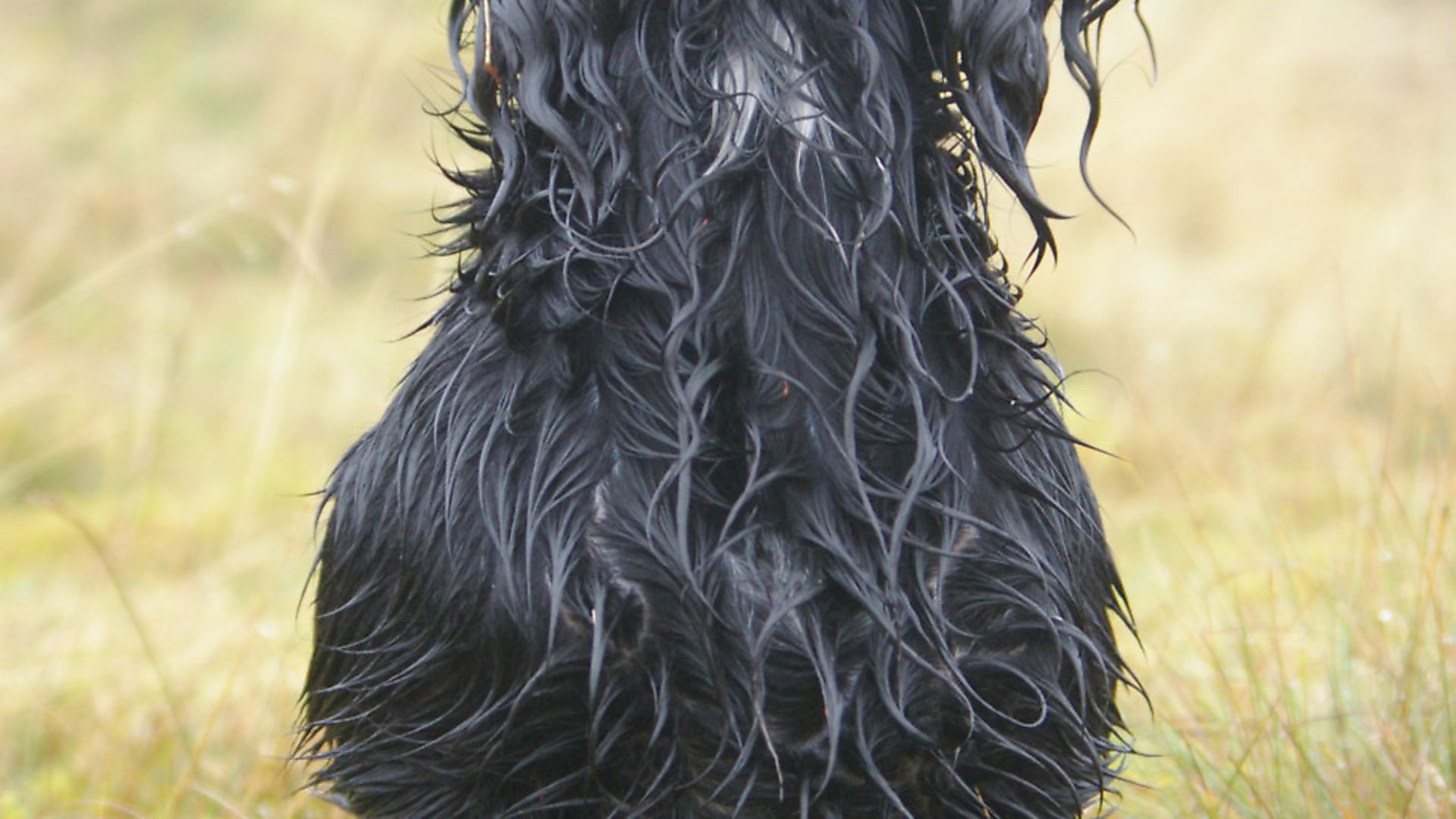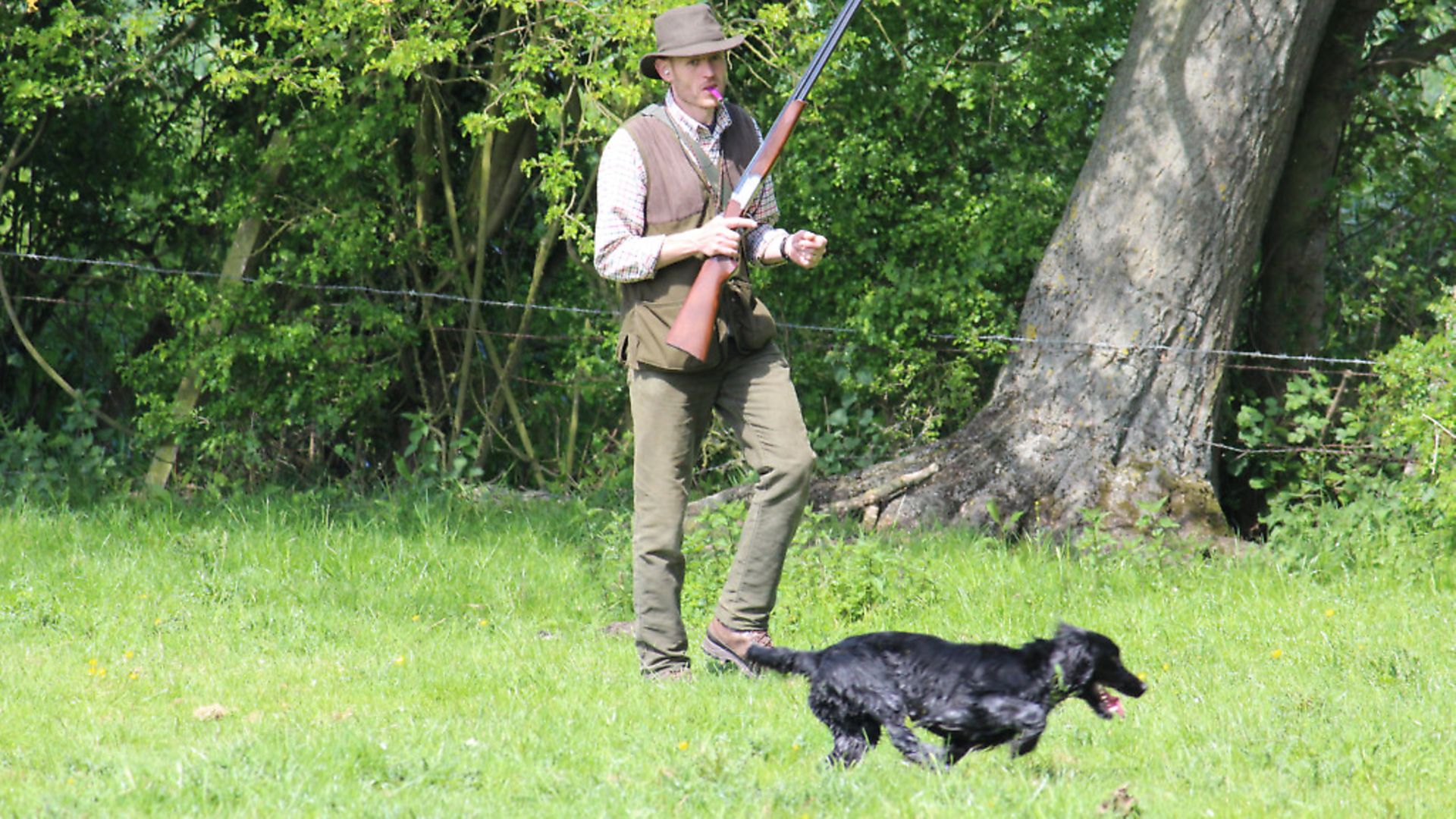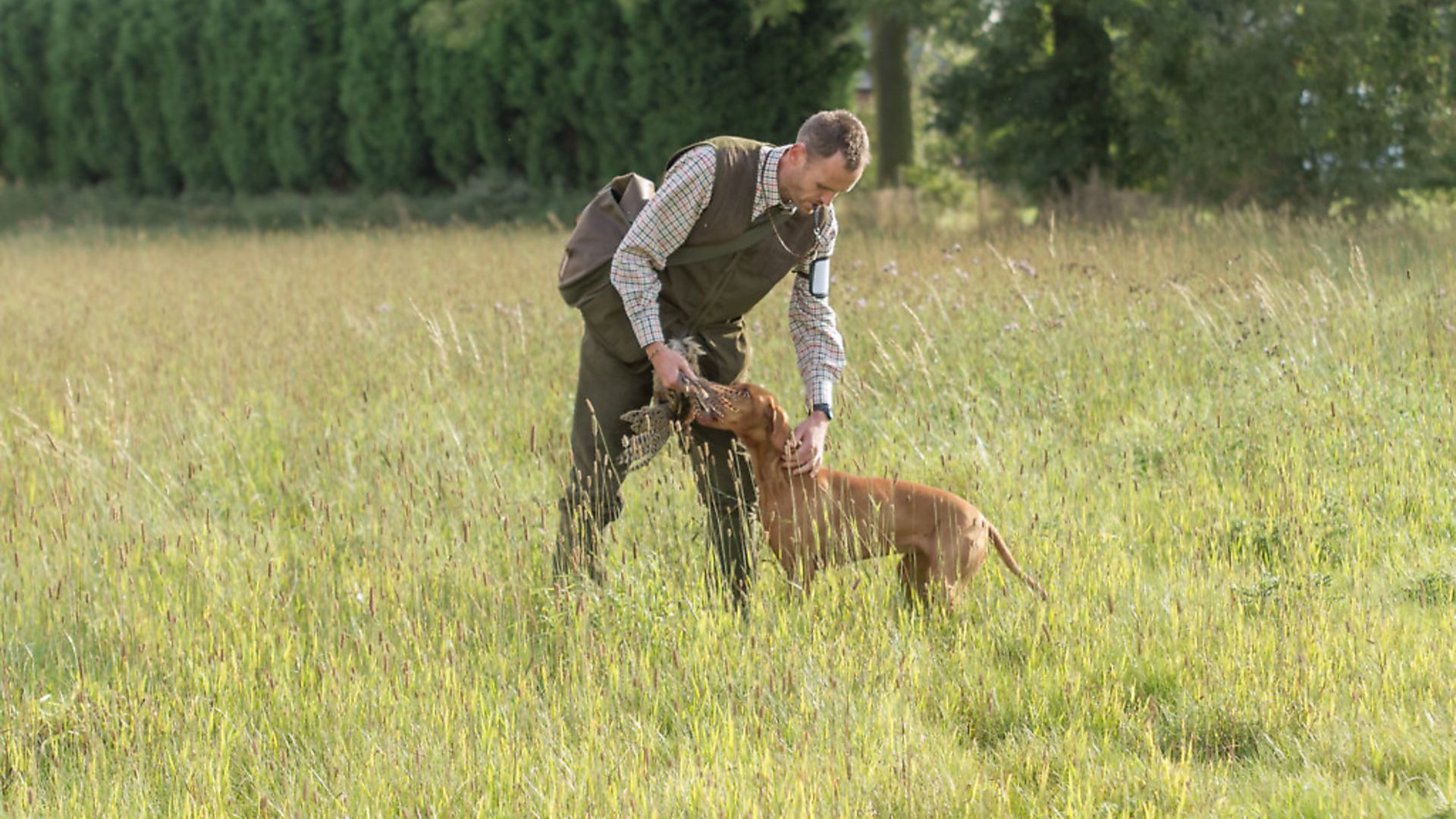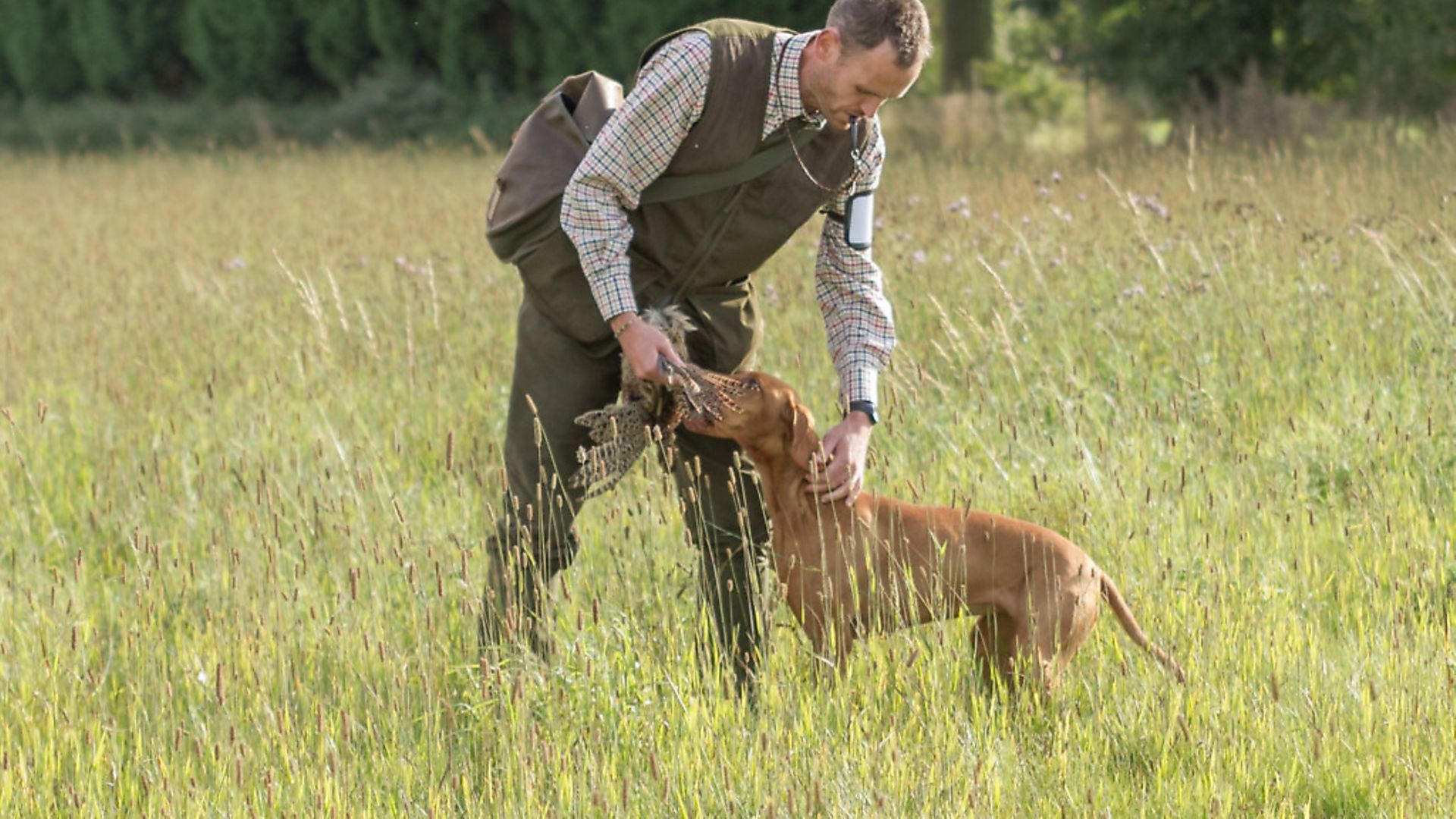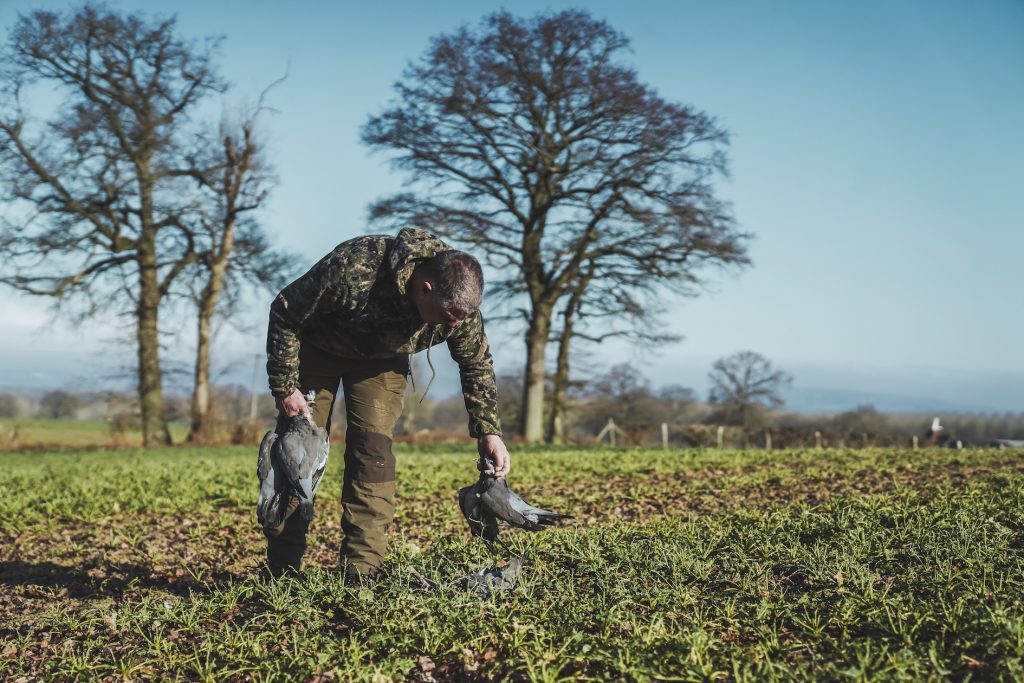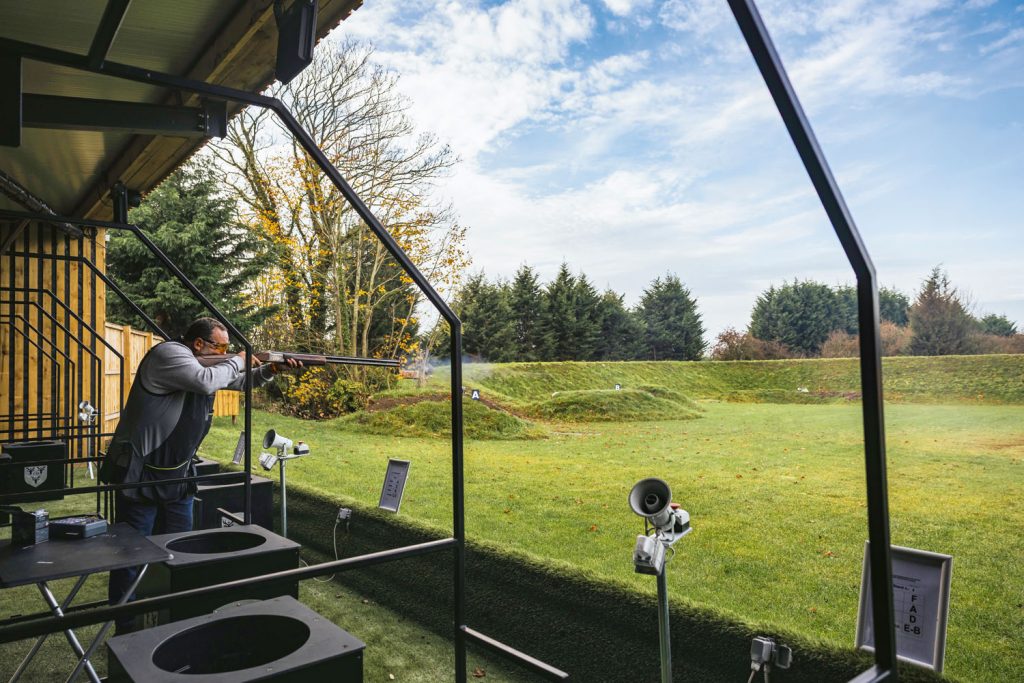★ Win a Schöffel Country shooting coat for everyone in your syndicate worth up to £6,000! Enter here ★
Training to suit personality
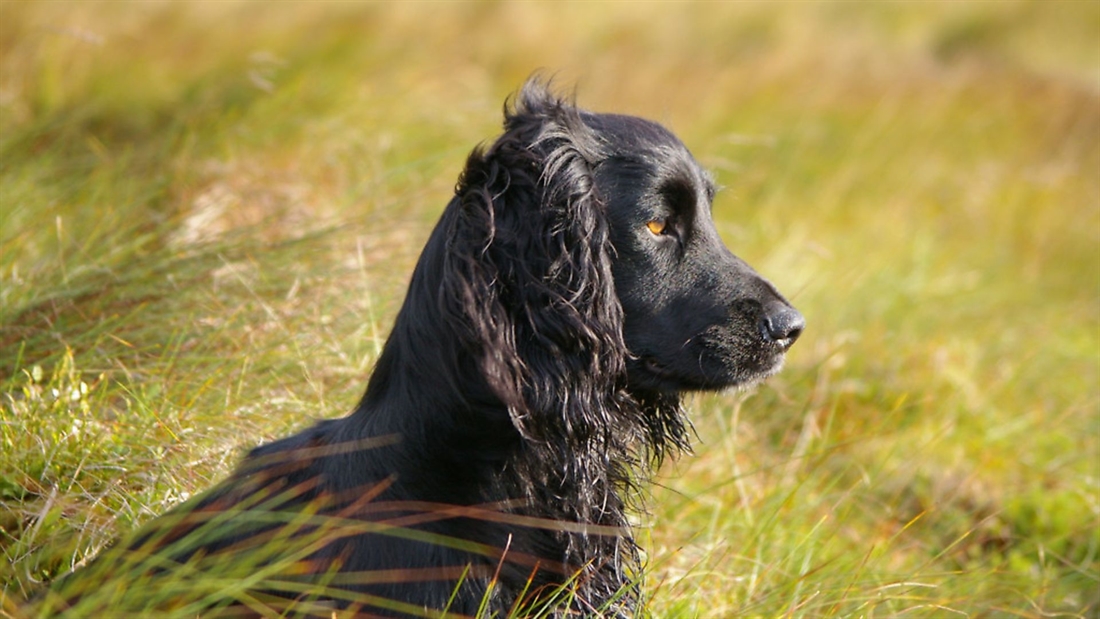
Ryan Kay looks at gundog training to suit different personalities, and debates why the same approach doesn’t work for every dog… is yours a ‘soft type’ or a ‘hard type’?
It’s a lovely time of year to be out training and the only annoying thing around us are the sprouting little nettles that seem to pop up everywhere and irritate the paws of my busy spaniels. Charlie in particular has been busy, though more so with breeding. We’ve been undertaking regular trips to the lab for frozen semen collection, ready for export or for our own use later on. I’m a little new to this sort of thing, and it appeared the owner of said semen collection business felt that an initiation was in order for me…
Latest collection done, I bumped into a friend who was also there using the company’s services. We got talking in the car park and subsequently popped back inside for a cup of tea and a chat with the owner. My friend placed his bitch on the table ready for a trans-cervical artificial insemination. Now my friend is a regular here and I can only presume he was in on ‘the act’, as he asked me to support the head-end of his bitch whilst he held the middle and the lab owner started the process at the opposite end, guiding a catheter through the cervix, so he could place the semen directly into the uterus. I was quite fascinated by it all and having been invited earlier by the owner to look through a microscope to witness the difference between healthy and unhealthy semen, I was somewhat taken in, which may explain my naivety in what happened next… this is me lining up my defence!
“Quick, grab one of those little plastic bags Ryan,” said the owner. “Quick as you can now!”
Scrambling for a small transparent bag on the side, I was all fingers and thumbs trying to open it.
“Now, hold it over the bitch’s nose… quickly now!” I did this without question!
“Now hold it there and catch any semen that comes out!”
Well, I’m not going to let on just how long I held the bag there at the poor dog’s nose, but the giggles from the nearby lab assistant gave the game up before I started to shout profanities. Oh yes, we all laughed!
Last month I touched on the subject of different dog personalities, and how some very driven competitors in field trials only have room for a dog that displays a certain disposition. I understand this. Or at least I understand what type of dog they want and why they want that type. It’s usually a hard-type dog that fits the bill – and invariably one that can take a hard-hand. You see there’s time and indeed money when it comes to competing at the top for some competitors, and a dog that doesn’t fit into, or handle a particular way of training, will often be moved on and sold. But I think this ‘treating every dog the same’ method is a shame and sometimes a little short-sighted.
A hard personality can often be accompanied by drive and a natural desire to hunt or get on with the retrieve. I too, like to see natural ability and a desire to get on with the task without too much interference, but I don’t always think that it has to come with a hard personality. Those that have trained some of the HPR breeds to a high standard will know what I’m talking about, as a more sympathetic approach is often needed to bring out the best in some of these breeds. Now don’t get me wrong, I don’t believe in trying to put something in that’s not there; continual exposure to game just to get a young dog going is then not natural ability.
A young spaniel that comes to life on ‘scenty’ ground for the first or second time is an exciting thing to watch. When that fire is lit inside the dog – and the DNA from years of selective breeding is being summoned to show itself – that is a pleasure to witness. So as I’ve said before, if the breeding is there, then we shouldn’t have to worry about the hunting and instead put the control in beforehand.
So back to the different personalities. I have a hard-headed dog here in Charlie… he really is very hard-headed! Any ‘old school’ trainer could have trained him. A testing sort, but he’ll hunt any cover, anywhere. Perfect for a serious trialler – he’ll transfer to anyone within moments… so long as he’s being hunted, he’s happy. He’d forget me in a day! That does slightly gut me, because I love him. But he’s not too bothered, and basically says: “Get me out, hunt me hard and put me away.” And that’s where he stays; in his man cave, albeit with soft furnishings and heating!
Now I also have some very soft and sensitive dogs here – Damson, a daughter of Charlie, and Molly, our Hungarian Vizsla. Molly achieved great success in her time trialling and had natural hunting ability. When the time came to be exposed to gamey ground, she instantly responded. However, until that point, my approach with her was completely different to Charlie’s. Yes the objective was the same, control first etc… but the methodology and how I went about achieving that objective required much more patience and time; a different way of training. You could say that’s more to do with the breed, but I dare say that Damson will also need a different approach too, perhaps more time to grow up and a gentler introduction to cover for example. Yet, when it comes to the day she’s exposed to a lot of scent, I have every confidence that the DNA will be summoned.
An experienced trialling friend of mine, when talking about his own-bred dogs, says that although they haven’t all got the speed required to make them into Field Trial champions, he’s never had a dog that wouldn’t hunt!
So do we all want hard dogs?
I mentioned short-sightedness earlier and those who write-off the soft dogs. I visited the same trialling friend earlier in the year and he happens to have a very soft cocker indeed. In fact he is possibly the softest cocker I’ve seen. I love him. Now the trainer is an honest man with good intentions and I don’t believe he’d come across a dog so soft before, but he’s not one for giving up on a dog and indeed wants any dog to be the best it can be. So soft was the dog, that it wouldn’t handle onto a retrieve. Instead it often shut down for fear of being told off (and by told off, I mean a slightly deeper tone of voice was enough for this dog). A big man stopping the dog out on a retrieve with his hand in the air was body language that this dog wouldn’t accept; so a different approach was required. Taking a step back, he decided to take the young cocker picking-up to see if it would boost its confidence. It did! In-fact the results were excellent – with 50-plus retrieves under its belt, the little dog had built up enough experience and confidence to realise that being handled onto a retrieve meant his owner would help him find the bird. The exposure brought out the expected talent to take a line on scent and it did so with poise! I also witnessed his natural line-taking ability when he picked up an award at a rabbit trial last season.
Let the other lot get on with it
My point is, the majority of us have a dog for life and as I said last month, that disposable approach – if it doesn’t fit into a single-minded way of training, then get rid – is simply not an option. So I say: read the books, go to training classes, watch the DVDs and listen to the advice, but be prepared that if your dog doesn’t fit into those schedules, you may need to change what you do, but please don’t write the dog off just because it’s different. Remember, they all develop and take things in at different ages. I imagine I may come under fire for this opinion, as some folk may take it that I’m advocating breeding from anything, but I’m not. There are plenty of other things to consider when it comes to breeding. Plus you can always try to complement the nature of what you have by choosing what you want to mate it with. For instance, I wouldn’t necessarily choose Charlie for a hard-headed bitch – we could end up with dogs that go over the top and we can’t hold on to. So my thinking is, so long as you get to the same end goal it doesn’t matter what personality your dog has. Besides, if all dogs had the same personality things would be pretty boring. However you train, for me, it’s all about keeping that tail wagging!
Related Articles
Get the latest news delivered direct to your door
Subscribe to Sporting Gun
Subscribe to Sporting Gun magazine and immerse yourself in the world of clay, game and rough shooting. As the leading monthly publication for passionate shooters at all levels, Sporting Gun delivers expert advice, practical tips and in-depth reviews to enhance your skills and enjoyment of the sport.
With features ranging from gundog training to pigeon shooting, and wildfowling to equipment recommendations, you’ll gain valuable insights from professional shooters and industry experts. A subscription not only saves you money on the cover price but also includes £2 million Public Liability Insurance, covering the use of shotguns, rifles and airguns for both recreational and professional use.
